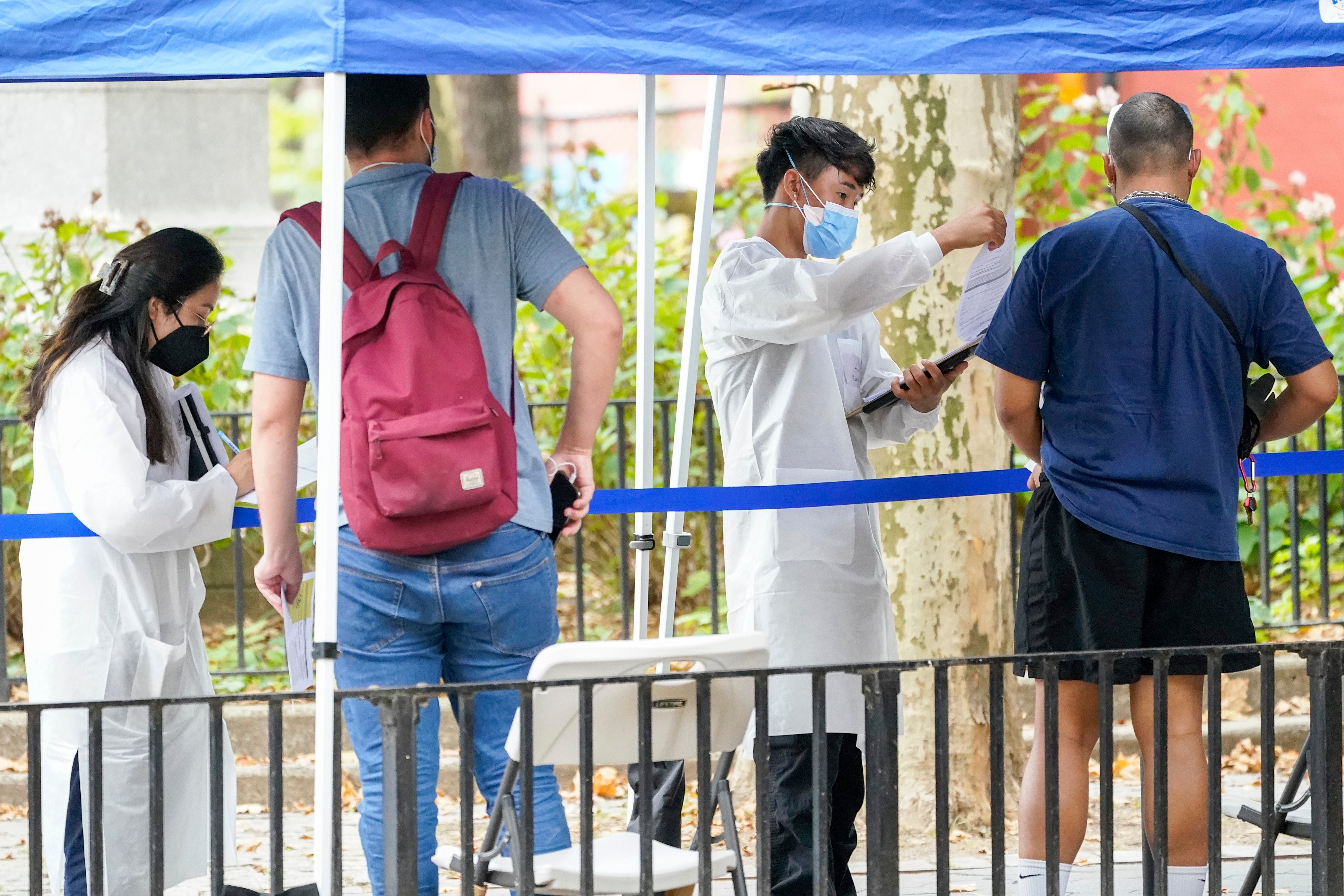US signs off on 800,000 more doses of monkeypox vaccine
Health regulators say nearly 800,000 doses of monkeypox vaccine will soon be available for U.S. distribution

After weeks of delays, nearly 800,000 doses of the monkeypox vaccine will soon be available for distribution, U.S. health regulators said Wednesday.
The announcement comes amid growing criticism that authorities have been too slow in deploying the vaccine, potentially missing the window to contain what could soon become an entrenched infectious disease.
Nearly two weeks ago, the Food and Drug Administration said it had finished the necessary inspections at Bavarian Nordic's facility in Denmark, where the company fills vials of the vaccine. The FDA said via Twitter on Wednesday that the certification had been finalized. The doses are already in the U.S. “so that they would be ready to be distributed once the manufacturing changes were approved,” the agency said.
The U.S. already has sent more than 310,000 doses of the Jynneos vaccine to state and local health departments. But clinics in San Francisco, New York and other major cities say they still don’t have enough shots to meet demand.
The head of the U.S. Department of Health and Human Services said Wednesday officials would announce more allocations on Thursday.
The monkeypox virus mainly spreads through skin-on-skin contact, but it can also transmit through touching linens used by someone with the infection. The vast majority of cases reported have been in men who have sex with men, though health officials have stressed that anyone can catch the virus.
People with monkeypox may experience fever, body aches, chills and fatigue. Many in the outbreak have developed zit-like bumps on many parts of the body.
The sluggish federal response has drawn comparisons to the initial days of the COVID-19 outbreak, but experts had pointed out that the U.S. had one huge advantage: more than 1 million doses of vaccine in the strategic national stockpile.
But it turned out U.S. officials had only about 2,000 doses on hand when the outbreak was first identified in May. Shipping and regulatory delays have meant only a portion of the rest were deployed.
“There's not enough doses,” said Dr. Perry Halkitis of Rutgers University. “I think with some quicker action on part of federal government we might not be in the situation we are now.”
The doses previously shipped came from a separate facility in Denmark that already had FDA clearance. Another 786,000 doses made at a newly opened Bavarian Nordic facility were awaiting the U.S. certification announced Wednesday.
The FDA requires inspections of all vaccine manufacturing plants to assure safety, sterility and consistency of production.
U.S. officials announced orders this month for 5 million more doses, though most of those are not expected to arrive until next year
Officials have recommended the shots be given to people who know or suspect they were exposed to monkeypox in the previous two weeks.
The Jynneos vaccine has never been widely used in response to an outbreak like this, and the government will track how well it’s working,
___
The Associated Press Health and Science Department receives support from the Howard Hughes Medical Institute’s Department of Science Education. The AP is solely responsible for all content.
Bookmark popover
Removed from bookmarks